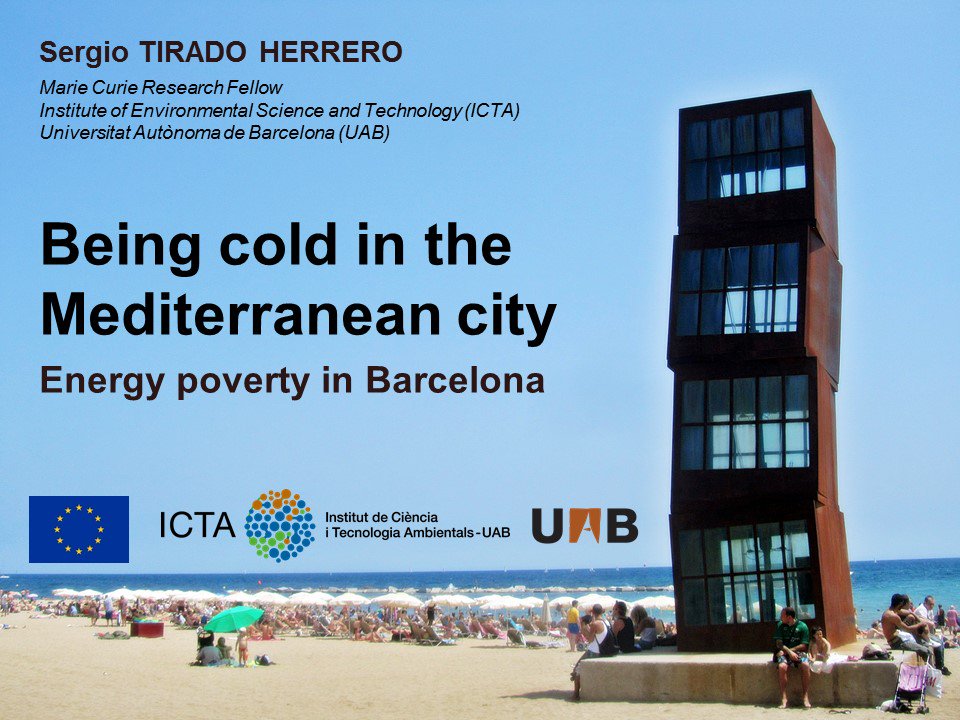ICTA-UAB researcher Sergio Tirado tackles energy poverty in a conference in Romania
ICTA-UAB researcher Sergio Tirado participated in the second ENGAGER conference “Energy poverty, clean energy, and the European energy divide” that took place in Bucharest between the 22nd and 24th of January 2019.

The conference was organized by the Babes-Bolyai University, through the Centre for the Study of Democracy at the beginning of the Romanian presidency of the EU council, in partnership with the European Commission Representation in Romania and with the support of Enel.
Sergio Tirado took part in a panel focused on “The social dimension of energy poverty” and gave a seminar on the research he is conducting at ICTA-UAB entitled “Being cold in the Mediterranean city: Energy poverty in Barcelona”.
This policy-oriented conference aimed to address the need to deepen the understanding of energy poverty across diverse spatial sites. Organizers sought to provide up-to-date scientific inputs and to ensure a transfer of knowledge and good practices with a general purpose to improving the quality of national and EU public policies. Also, the conference aimed at fostering dialogue between young and experienced scholars and relevant stakeholders, such as representatives of public institutions, the civil society, or private sector, in order to facilitate the exchange of ideas and reciprocity with the market. The schedule combined the academic component with an event hosted by the Romanian Parliament and with field trips aimed at exposing the participants to visible dimensions of energy poverty in Bucharest.
Sergio Tirado is a Marie Curie Research Fellow at ICTA-UAB. He is carrying out the H2020 project TRANSFAIR, that aims to identify, conceptualise and empirically substantiate the ways in which the EU’s “transition to a low-carbon, secure and competitive economy” may (or not) be reproducing and reinforcing current energy vulnerability trends in Member States. To this end the research combines the political ecology and environmental justice frameworks with transitions theory and multi-level governance perspective, conducts a critical, integrative review of scientific and policy literature and carries out an empirically-based examination of two complementary case studies: renewable electricity cooperatives in Spain and advanced thermal retrofits of multi-family buildings in Hungary.